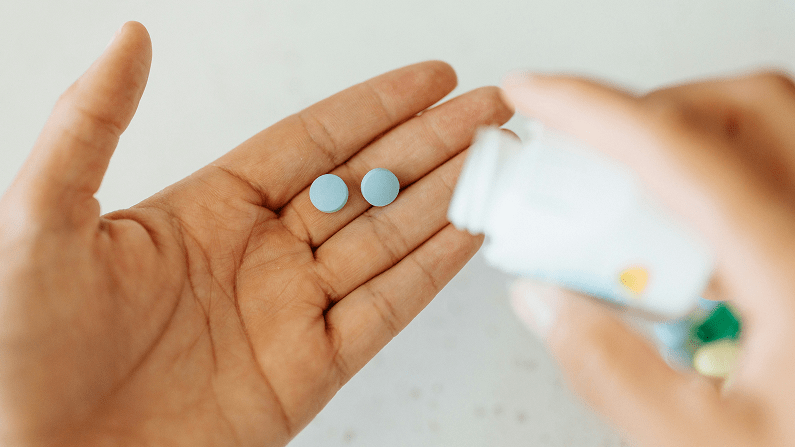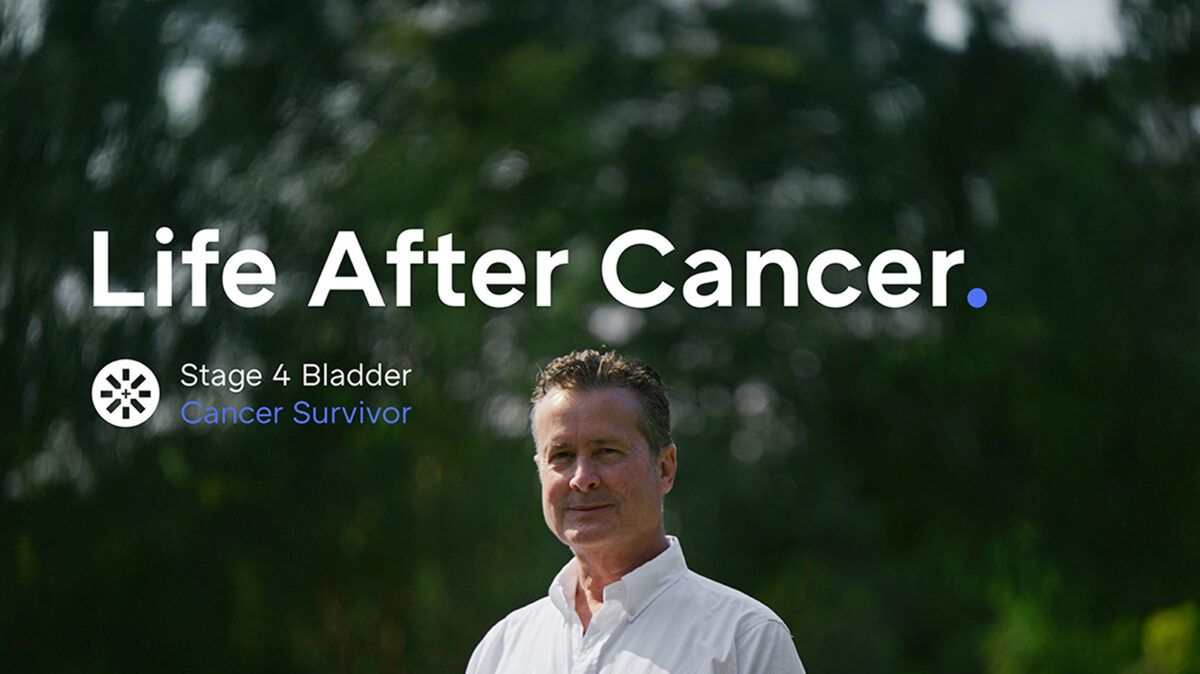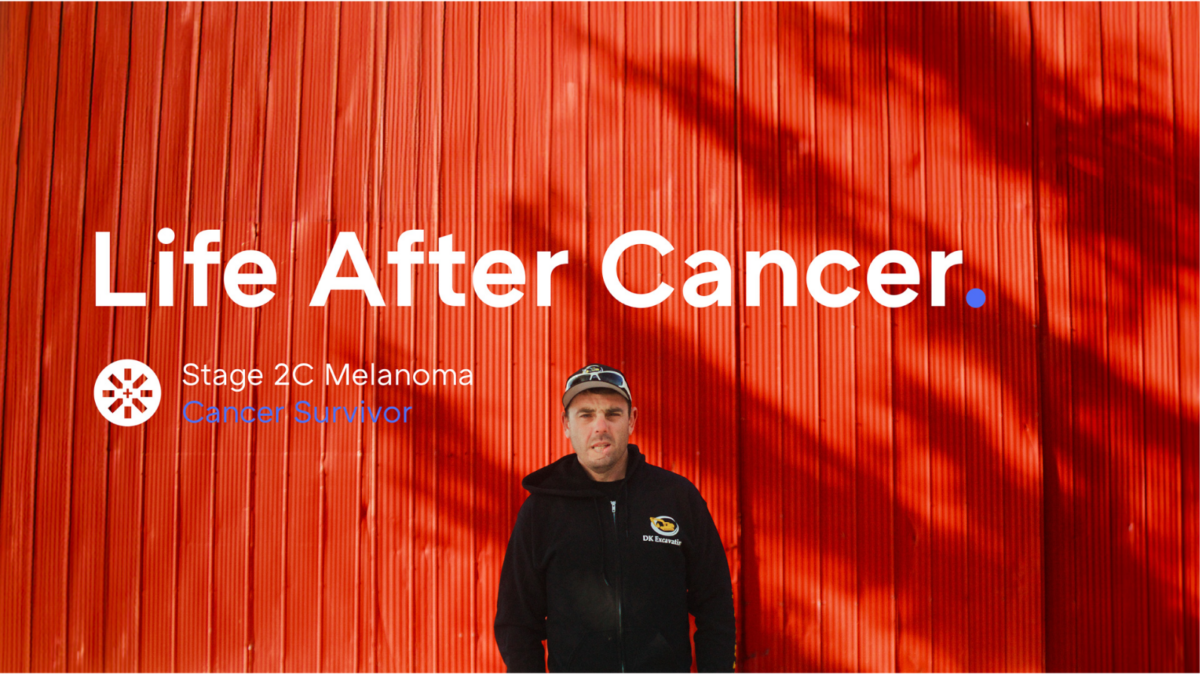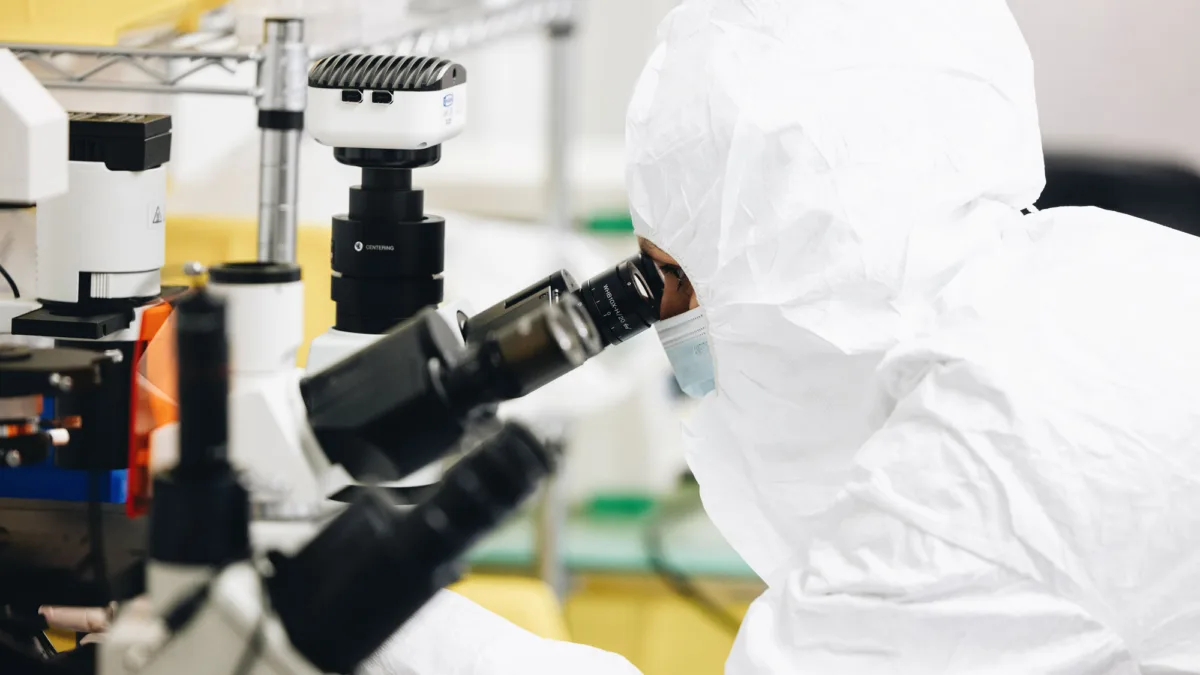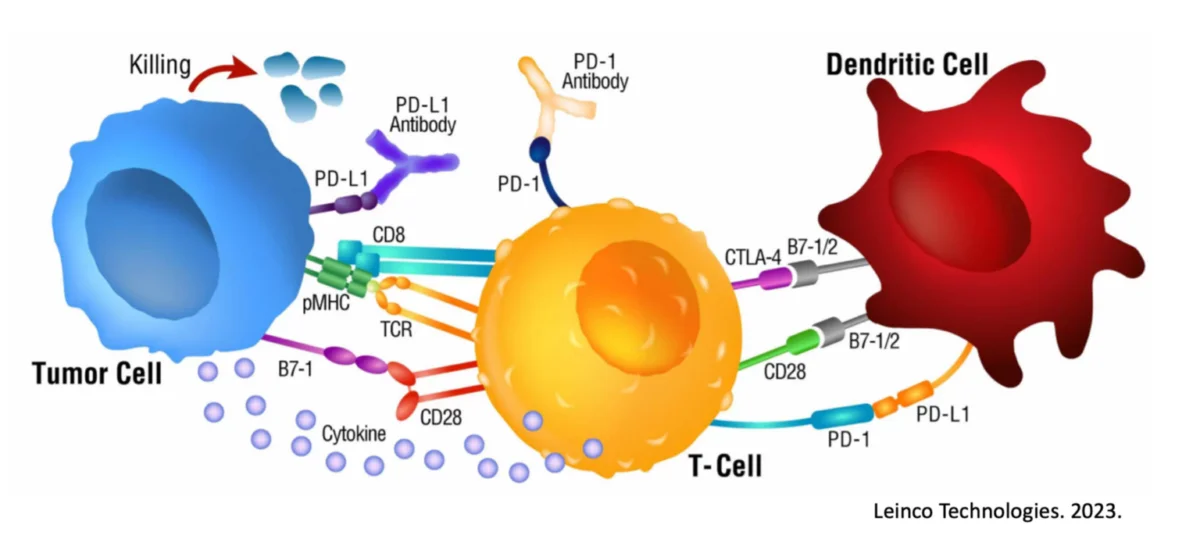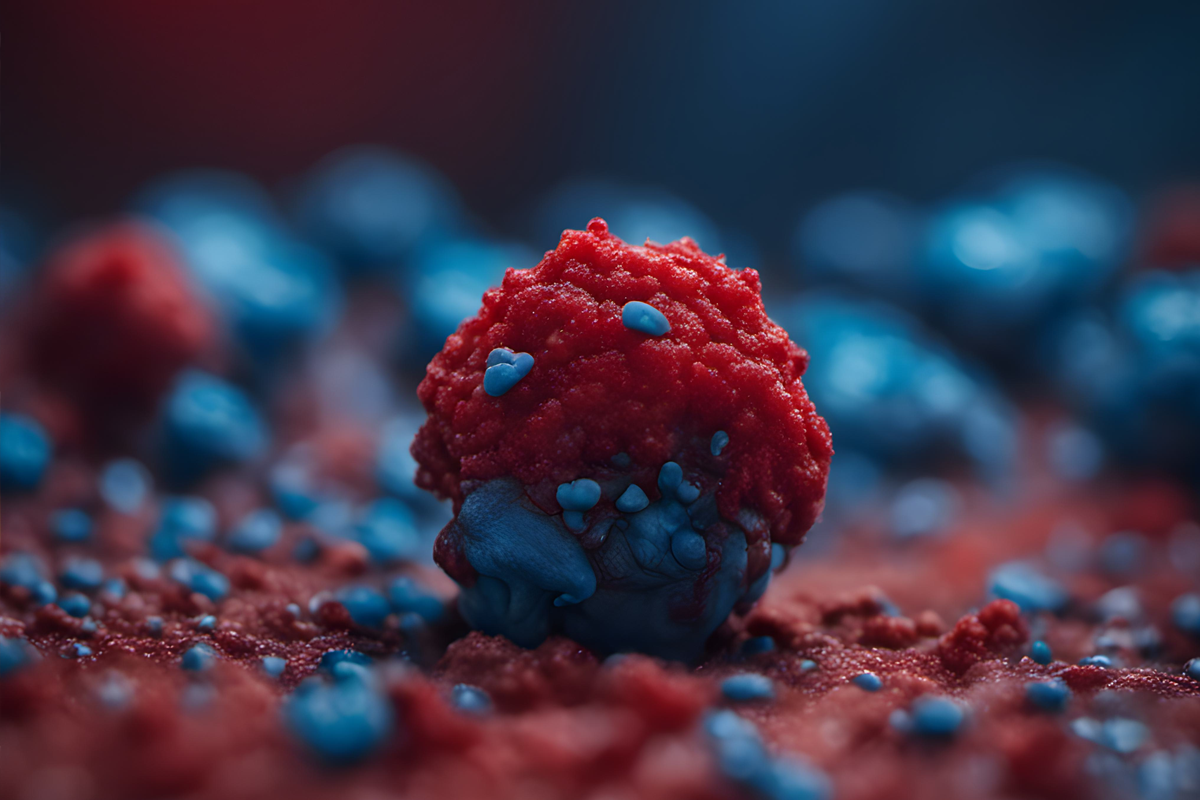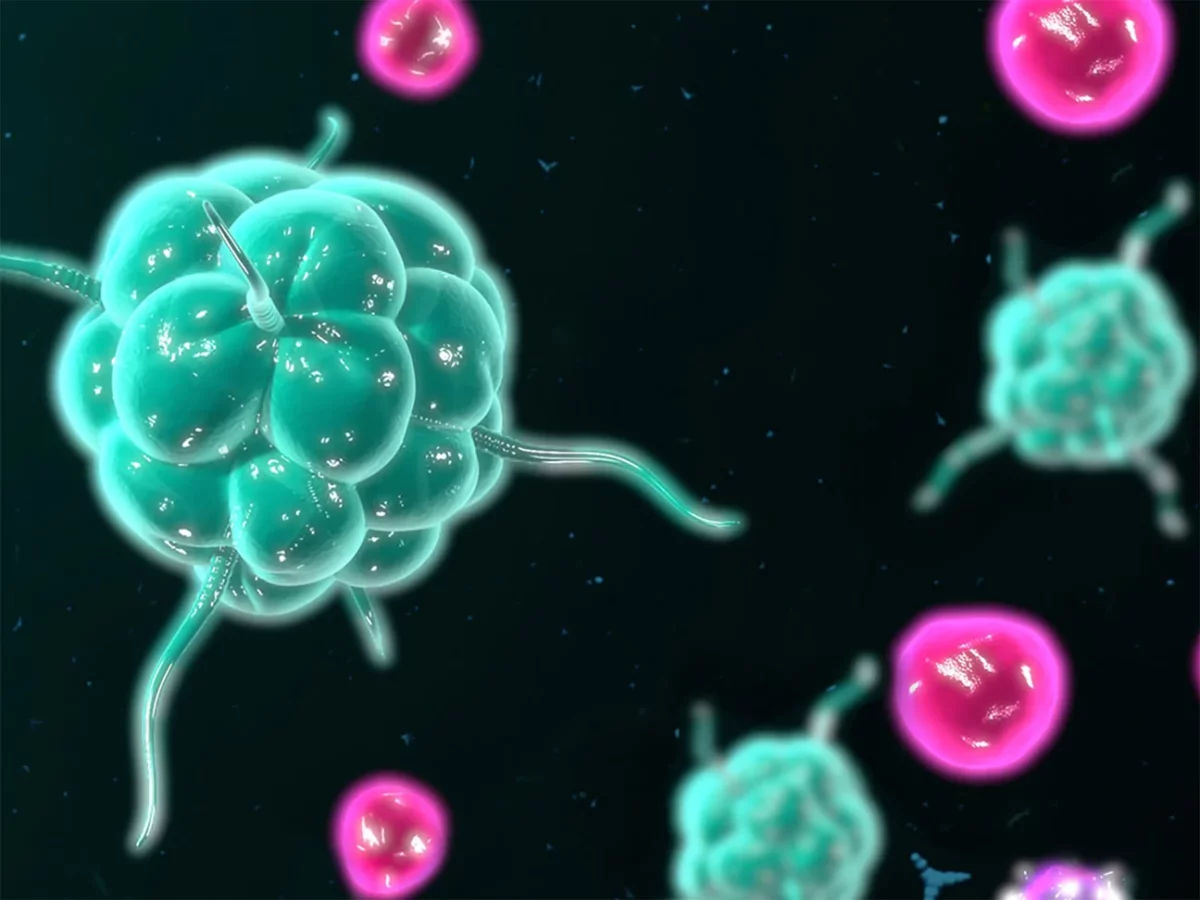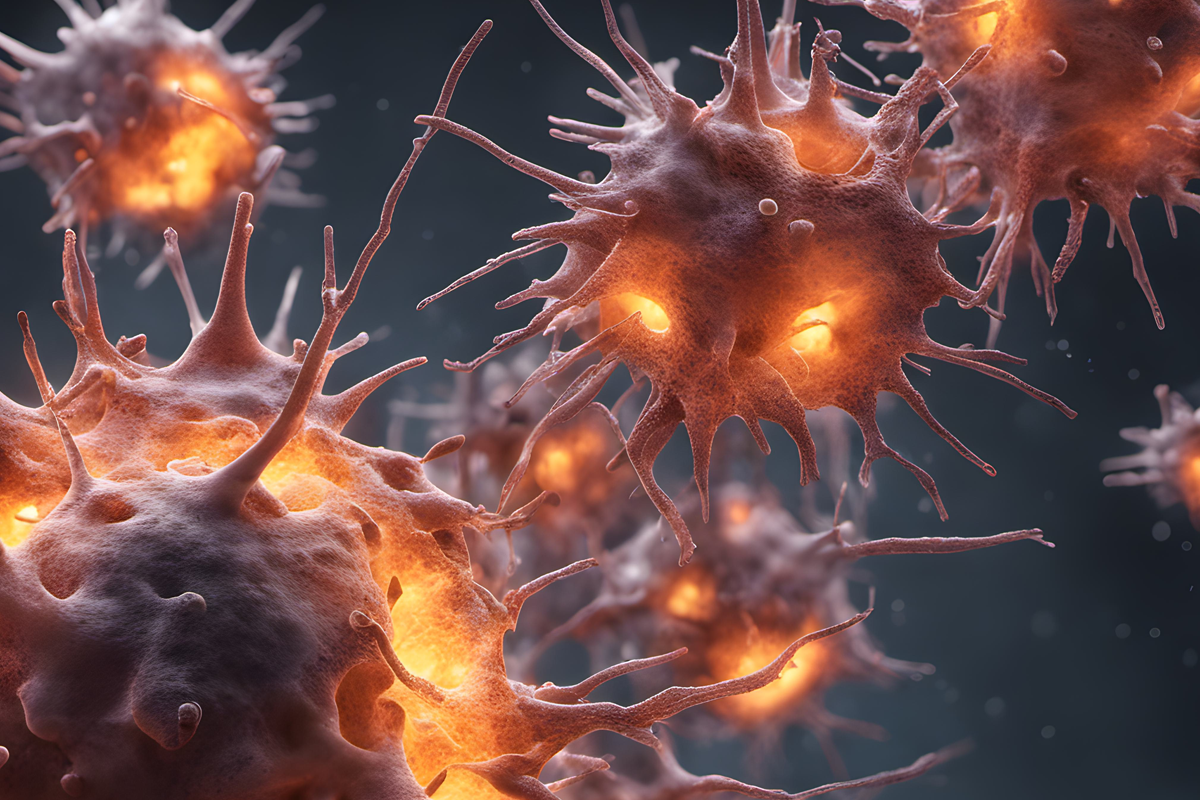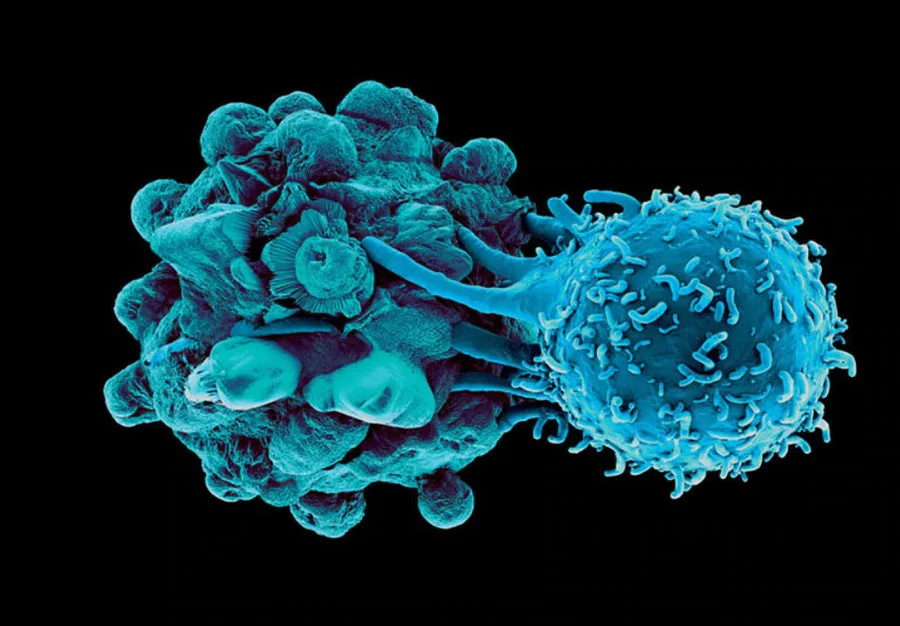Boosting Immunotherapy with Dietary Fiber
Of the 1.9 million cancer patients in 2021, 600,000 received immunotherapy, a remarkable number given the FDA approved the first cancer immunotherapy in 2011. This growth in the utilization of immunotherapy has spurred research into novel immunotherapies such as Immunocine’s Treatment, but also in supportive approaches to enhance immunotherapy.
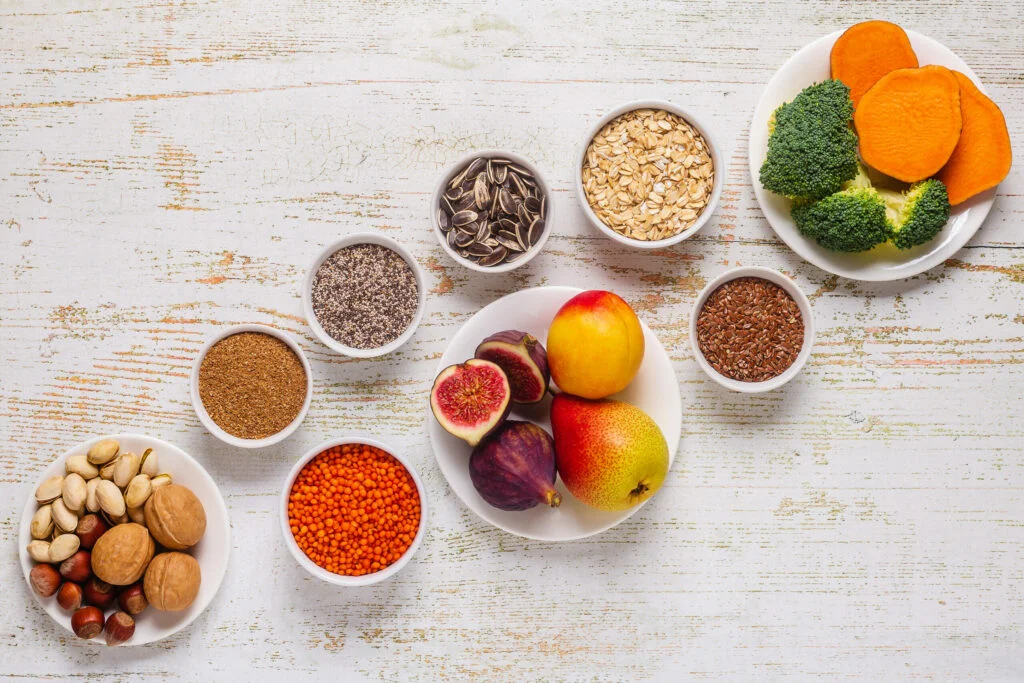
While it’s promising that there is so much research to improve the effectiveness of immunotherapy, it can also be challenging for patients to navigate and determine which strategies to prioritize.
Fortunately, recent research has highlighted the potential benefits of something as simple as adding fiber to one’s diet. While this is currently being studied in labs across the globe, our team wanted to highlight one such study within the past couple of years that was published in Science and showed some interesting conclusions.1
What does the data show?
The primary points of interest in this study were how different gut microbiota affected response to Immune Checkpoint Inhibitor therapy, how probiotics might alter such a response, and if levels of dietary fiber made any difference to survival metrics. Though we cannot delve entirely into the robust publication here, the impact of dietary fiber consumption was quite notable.

Essentially, cancer patients being treated with a PD-1 checkpoint inhibitor saw significant improvement in their tumor control and overall survival (above baseline) when also consuming a sufficient amount of dietary fiber each day (sufficient in this study was defined as >20g/day).
Probiotics May Limit Effectivenesss

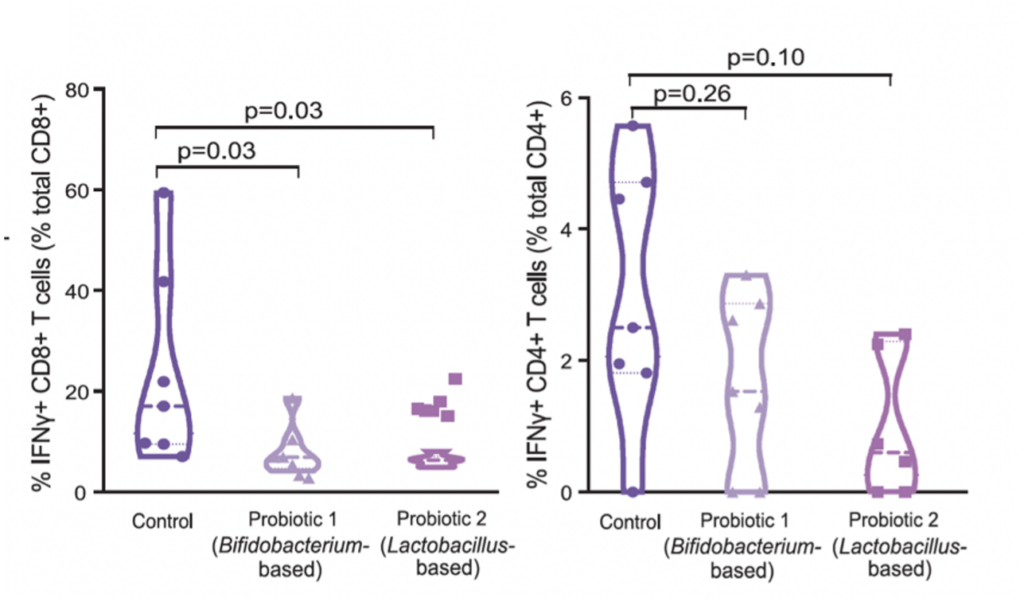
Interestingly, the addition of probiotics seemed to reduce positive outcomes, though this was not broken down into which types of probiotics were ingested.
One possible reason for this counterintuitive response is that commercially available probiotics are taken as a ‘health supplement,’ though now always with much thought as to what exactly they are, how they may interact with the current microbiota, and how they may alter an anti-cancer immune response.
The authors of this study looked at the gut microbiome of patients who responded well (R=responders) and patients who did not (NR=non responders) and did see that they had different compositions of bacteria within their intestinal tract.
In specifically analyzing 2 popular probiotic based supplements in the lab, the authors demonstrated that the use of these supplements reduced the number of activated, responding Killer T cells fighting against the cancer.
Potential Mechanisms of Action
The study found that cancer patients on immunotherapy who were on a high fiber diet had changes in their cellular genetics within the tumor. These changes included stronger activation of T cells, better processing and presenting of antigens, and stronger activation of cell-death pathways.

However, the exact reason for the impact of dietary fiber on immunotherapy effectiveness is not fully understood. Researchers have proposed several theories, including the possibility that dietary fiber may reduce gut inflammation2, allowing the immune system to focus on cancer cells.
Additionally, dietary fiber may improve the absorption of essential nutrients by reducing intestinal barrier dysfunction, and it may stimulate the production of short-chain fatty acids, which are essential for immunity.3,4
And although the exact mechanism of action may not be known, there is already substantial evidence linking dietary fiber consumption to a reduced risk of cancer development5, 6 and improved survival rates in cancer patients7, 8.
Recommendations for Patients Undergoing Immunotherapy
Moving forward, the Immunocine team highly recommends that all patients prioritize their dietary fiber intake and achieve at least 20g of dietary fiber per day.
Fortunately, increasing fiber consumption is both simple and achievable, and we sug-gest the following methods:
Increase your intake of fruits and vegetables as they are naturally high in fiber and can be easily incorporated into meals or enjoyed as snacks.9
Snack on fiber-rich nuts and seeds such as almonds, chia seeds, and pumpkin seeds.10, 11
Consider using dietary fiber supplements to help meet the recommended daily intake of 20g per day. If you choose to use supplements, it is important to drink sufficient water to aid digestion.12
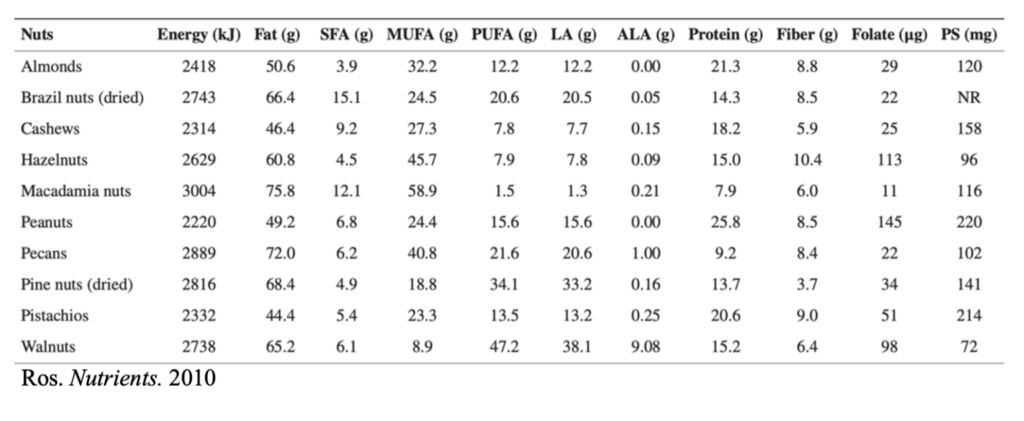
References
1. Spencer, C.N. et al. Dietary fiber and probiotics influence the gut microbiome and melanoma immunotherapy response. Science 374, 1632-1640 (2021).
2. Swann, O.G., Kilpatrick, M., Breslin, M. & Oddy, W.H. Dietary fiber and its associations with depression and inflammation. Nutr Rev 78, 394-411 (2020).
3. Usuda, H., Okamoto, T. & Wada, K. Leaky Gut: Effect of Dietary Fiber and Fats on Microbiome and Intestinal Barrier. Int J Mol Sci 22 (2021).
4. Li, M. et al. Pro- and anti-inflammatory effects of short chain fatty acids on immune and endothelial cells. Eur J Pharmacol 831, 52-59 (2018).
5. Kunzmann, A.T. et al. Dietary fiber intake and risk of colorectal cancer and incident and recurrent adenoma in the Prostate, Lung, Colorectal, and Ovarian Cancer Screening Trial. Am J Clin Nutr 102, 881-890 (2015).
6. McRae, M.P. The Benefits of Dietary Fiber Intake on Reducing the Risk of Cancer: An Umbrella Review of Meta-analyses. J Chiropr Med 17, 90-96 (2018).
7. Song, M. et al. Fiber Intake and Survival After Colorectal Cancer Diagnosis. JAMA Oncol 4, 71-79 (2018).
8. Zhao, J. et al. Association between Dietary Fiber Intake and Mortality among Colorectal Cancer Survivors: Results from the Newfoundland Familial Colorectal Cancer Cohort Study and a Meta-Analysis of Prospective Studies. Cancers (Basel) 14 (2022).
9. Dhingra, D., Michael, M., Rajput, H. & Patil, R.T. Dietary fibre in foods: a review. J Food Sci Technol 49, 255-266 (2012).
10. Ros, E. Health benefits of nut consumption. Nutrients 2, 652-682 (2010).
11. Whitebread, D. Top 10 Nuts and Seeds Highest in Fiber. 2022 [cited]Available from: https://www.myfooddata.com/articles/nuts-seeds-high-in-fiber.php
READ THIS NEXT
Nourishing Hope: The Vital Role of Nutrition During Cancer Treatment
Cancer is a formidable opponent that affects millions of lives worldwide. While advancements in medical treatments, such as immunotherapy, h
Read MoreCould Curcumin Really Help Cure Cancer?
Cancer is a complex disease that affects millions of people worldwide. While conventional cancer treatments such as chemotherapy, radiation,
Read MoreEGCG and Green Tea Protect Anti-Tumor Immunity
Epigallocatechin gallate (EGCG) is the most abundant catechin in green tea, and one of the most studied polyphenols across the world1.&
Read More






